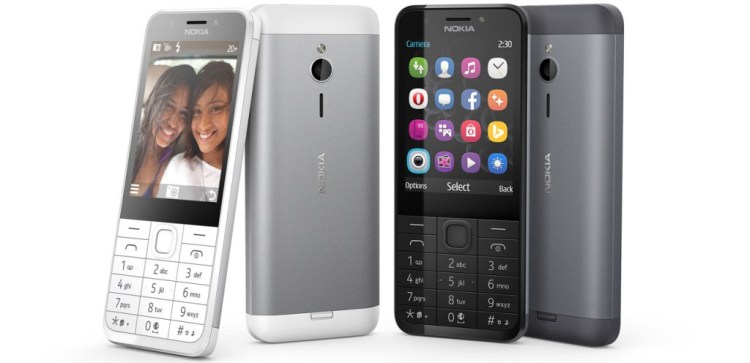Microsoft has announced an agreement to sell its feature-phone business to FIH Mobile, a subsidiary of Taiwan-based electronics giant Foxconn, along with another entity, called “HMD Global, Oy,” for about $350 million. The transaction is expected to close in the second half of 2016.
Once the deal is complete, around 4,500 employees will “have the opportunity” to join FIH Mobile, or HMD Global. HMD Global was founded out of Finland in 2015, and it initially looked like it was a business vehicle of sorts set up to help facilitate the Microsoft transaction. Finland, if you remember, is home to Nokia, the tech titan that sold its mobile phone business to Microsoft two years back. But this is where things start to get really interesting, because Nokia has now confirmed that it plans to reenter the mobile phone and tablet realm globally through a “strategic agreement covering branding rights and intellectual property licensing.”
“Today marks the beginning of an exciting new chapter for the Nokia brand, in an industry where Nokia remains a truly iconic name,” said Ramzi Haidamus, president of Nokia Technologies. “Instead of Nokia returning to manufacturing mobile phones itself, HMD plans to produce mobile phones and tablets that can leverage and grow the value of the Nokia brand in global markets. Working with HMD and FIH will let us participate in one of the largest consumer electronics markets in the world while staying true to our licensing business model.”
Once a major consumer brand, Nokia has been in an odd place since selling its mobile phone business to Microsoft, as well as offloading its Here mapping unit, but it has continued behind the scenes with its network infrastructure business, Nokia Networks, and Nokia Technologies, a wing that aims to keep the brand alive in the public realm. Nokia Technologies had been fairly quiet until recently, but it now has its virtual reality (VR) Ozo camera and the digital health-tracking company Withings, which it recently acquired for $192 million.
However, Nokia is a mobile phone company at heart, and it has previously indicated that any return to making phones would likely be through a brand-licensing agreement. This is because it no longer has many of the manufacturing and distribution capabilities needed to make and ship phones — it gave all that up when Microsoft came a-callin’. So while Nokia still harbors ambitions to be a big mobile brand, it will have to rely on others much more than it once did. You may remember that the company launched an Android-powered tablet in China back in 2014, which was under a similar arrangement as it will be using now.
This is where HMD Global comes into play — it’s a new private company seemingly founded under Nokia’s volition to build a new wave of mobile devices, replete with the Nokia brand. The venture is actually being run by CEO Arto Nummela, formerly of Nokia and the head of Microsoft’s Mobile Devices business in Greater Asia, Middle East, and Africa, as well as of Microsoft’s soon-to-be-sold feature phones business. Nummela will be aided by President Florian Seiche, who currently serves as senior vice president for Europe sales and marketing at Microsoft Mobile.
“We will be completely focused on creating a unified range of Nokia-branded mobile phones and tablets, which we know will resonate with consumers,” said Nummela. “Branding has become a critical differentiator in mobile phones, which is why our business model is centered on the unique asset of the Nokia brand and our extensive experience in sales and marketing. We will work with world class providers in manufacturing and distribution to move quickly and deliver what customers want.”
We don’t yet know what these devices will look like, but we do know that HMD plans to invest around $500 million over the next three years to “support” the marketing of Nokia-branded devices, which HMD says will be “funded via its investors and profits from the acquired feature phone business.” Nokia also says that it will acquire the rights from Microsoft to use the “Nokia” trademark on feature phones until 2024.
The long and short of all this is that Nokia has put in place a setup that will give it an “independent home for a full range of Nokia-branded feature phones, smartphones and tablets,” as the company puts it.
As for Microsoft, well, it said that it will continue to focus on Windows 10 Mobile and will “support” Lumia devices from its partner manufacturers, such as HP, VAIO, and Acer. The company is rumored to be working on its own Surface Phone too, though there is no official word on when — or even if — that will see the light of day.
The Microsoft-Nokia acquisition was something of a disaster, with Microsoft last year cutting thousands of jobs and writing down roughly $7.6 billion on the acquisition. Microsoft may never make a big success of mobile phones, but Nokia could be on the way back.
VentureBeat's mission is to be a digital town square for technical decision-makers to gain knowledge about transformative enterprise technology and transact. Learn More

